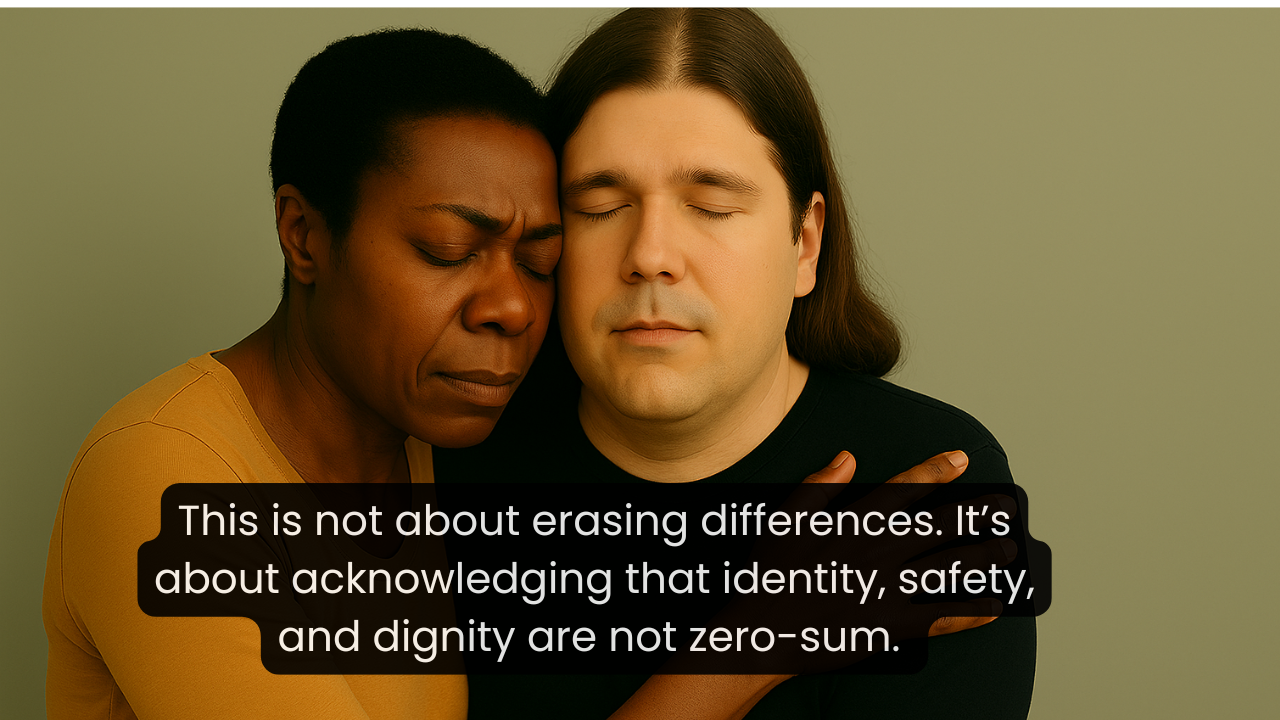UK Supreme Court's Definition of 'Woman' - Why This Decision Hurts Us All
Apr 22, 2025
Last week, the UK Supreme Court ruled that, for the purposes of certain legislation, the term “woman” must mean a biological female. On the surface, this may seem straightforward, perhaps even benign. Some women are jubilant because they feel ‘safer’ in women-only spaces. But dig a little deeper, and the implications become deeply troubling, not just for trans communities, but for all women.
At a time when political rhetoric is increasingly polarised, it’s easy to get swept into fear-driven narratives. We are told this decision protects women’s safety. But the question we must ask is: which women? And from whom?
Because this isn’t just about trans people, it’s about the growing policing of bodies. Women who are tall, broad-shouldered, older, muscular, or otherwise deemed ‘masculine’ by someone else’s arbitrary standards may now find themselves subject to suspicion, scrutiny or even humiliation in spaces designed to keep them safe. Being of African heritage, I am all too aware that women like me are often deemed more ‘masculine’ as we tend to be more muscular.
It’s not hard to imagine the real-life consequences of this, women being questioned in changing rooms, refused entry to gyms, stared at in toilets, or worse, publicly “transvestigated” by strangers emboldened by a legal precedent that prioritises perceived biology over lived experience.
This ruling doesn’t prevent male violence. It doesn’t stop abuse in homes, workplaces, or institutions. Violence against women and girls (VAWG) accounts for just under 20% of all recorded crime in England and Wales. This legislation won’t prevent predators from harming women, because they already do, without disguises. According to the 2021 UK Census, only 0.5% of people report their gender as different from the one they were born as.
The fear of trans women in women’s spaces has taken up a lot of public discourse, and as a cisgender woman, I can understand why other women are scared by the rare stories of trans women harming us in our safe spaces. However, these incidents pale in comparison when looking at VAWG. This seems to be massively missing from this debate about women’s safety. There is an epidemic of abuse by cisgender men, some in positions of power. We don’t have to look far to see the evidence of this. I am yet to see the national outcry over the 9 in 10 female homicide victims who are killed by men in the UK. Elianne Andam was only 15 when she was murdered by a boy whose advances she had refused. . Where is the urgency around the systemic failure that leaves so many women needing shelters in the first place?
In truth, this ruling risks solving a problem that doesn't exist, while ignoring the ones that do. It creates a hostile climate for trans and non-binary people, but also for gender-nonconforming cis women and intersex individuals, whose existence is rarely even acknowledged in such conversations. Who will decide who ‘looks’ like a woman? Will we now require forced genital inspections for fairness in sport, or safety in public toilets?
As a society, we should be working to reduce harm, not shift it. When we narrow our definition of womanhood to biology alone, we don’t just erase trans women, we devalue the full spectrum of what it means to be a woman. We reinforce rigid stereotypes, we create fear, and we turn marginalised people into scapegoats. This makes me feel really uneasy.
This is not about erasing differences. It’s about acknowledging that identity, safety, and dignity are not zero-sum. Our liberation is intertwined. We are strongest when we protect each other.
My heart goes out to everyone who is negatively impacted by this decision. I truly hope that despite this ruling, you are able to lean on your safe spaces for comfort and solace.
For the rest of us, can we please ask better questions? Can we indulge in critical thinking and look beyond headlines and scare stories? Can we remember that most of the violence women face does not come from people in dresses, but from people in power?
I’ll leave you with this poem:
First they came for the Communists
And I did not speak out
Because I was not a Communist
Then they came for the Socialists
And I did not speak out
Because I was not a Socialist
Then they came for the trade unionists
And I did not speak out
Because I was not a trade unionist
Then they came for the Jews
And I did not speak out
Because I was not a Jew
Then they came for me
And there was no one left
To speak out for me
Pastor Martin Niemoller
Talking about racism can seem difficult and uncomfortable. This CPD accredited course provides a foundational education on racism to help to increase racial literacy which includes building confidence to speak about and deal with issues concerning race. It provides a language through which meaningful conversation can take place (particularly in the workplace).
Stay connected with news and updates!
Join our mailing list to receive the latest news and updates from our team.
Don't worry, your information will not be shared.
We hate SPAM. We will never sell your information, for any reason.
